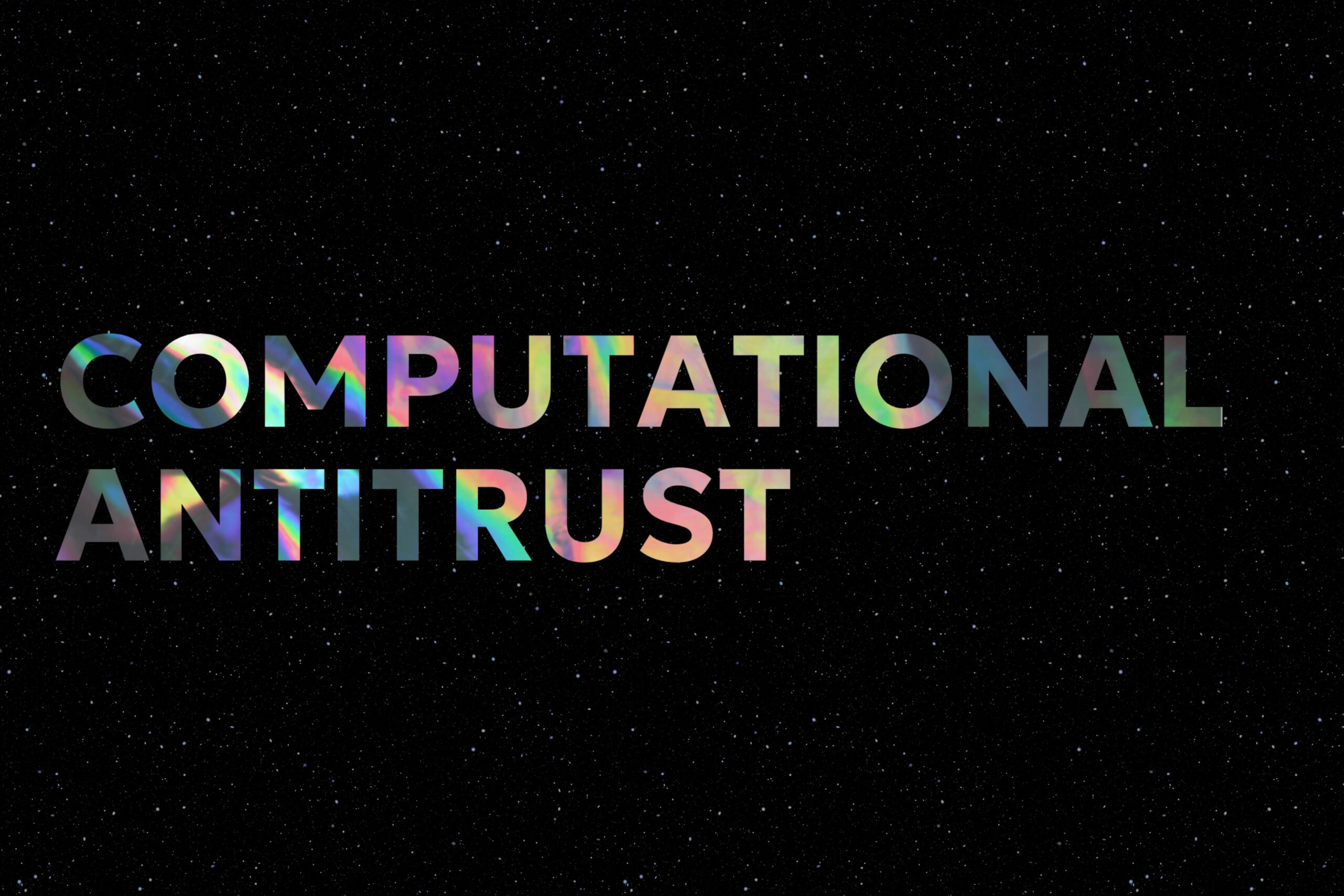Welcome to the Competition Stories – a bimonthly exploration of recent courts and competition law agencies’ decisions. Authored by Makis Komninos, a renowned expert in the field, this new column aims to go through the latest and most important developments in competition law of the last two months. We call them “stories” because Makis has promised to include some anecdotes from time to time, and not just stay at the black letter. Enjoy!
***
When Thibault came to me with the idea of publishing a bimonthly review of EU competition law developments, I jumped at the idea. It proved to be quite fun. So here is my first “Stories” covering September-October 2020.
AG’s opinion in Slovak Telekom
Article 102
I start first with three very interesting Opinions by Advocates General that were delivered on 9/10 September. On 9 September, we had AG Saugmandsgaard Øe’s Opinion in Slovak Telekom. This is a case involving important legal questions on the interpretation of Article 102 TFEU in the broad area of refusal to supply and on the bearing of the seminal Oscar Bronner ruling. The AG also dealt with some questions of parent-subsidiary liability but I will mostly stay with the substantive questions.
With all the respect to the learned AG, I hope the Court does not follow his Opinion. Nicolas Petit also published on this and I agree 100% with his views. In short, the AG categorizes Bronner as a “very special case within Article 102”. Already this is pretty bad – sounds like Bronner should be relegated to a footnote. Note: the AG is not saying that the case at issue has to be categorized as special and distinguished from Bronner, rather that Bronner is the problem! Indeed, the AG says that Bronner represents a “peak in the regulatory landscape of 102” and applying it too often would entail “a weakening of the Commission’s power to combat abusive practices” because dominant companies would have “an increased margin for manoeuvre“. I am sorry, but this does not strike me as a convincing explanation. It sounds like “if I don’t find you guilty, I risk setting you free”.
Then, the AG (I think rightly) rejects the main argument in the Commission’s Decision that Bronner does not apply to a “constructive” (or implied) refusal to supply. In fact, I happened to attend the oral hearing (wearing a mask) as a member of the public, and I can tell you this was a question where the Commission was “grilled” at the Q&A. However, the Opinion did buy the Commission’s position at the hearing that there is supposedly a distinction between (a) access to infrastructure (Bronner); and (b) imposing “unfair” or disadvantageous terms and conditions of access. So the AG prefers to see the case through the angle of “unfair trading terms” and disagrees with the Commission on the characterization of “constructive refusal to deal”.
The problem, however, is that this logic creates perverse incentives for dominant companies, which will prefer not to deal at all instead of dealing but running the risk of being subjected to a much lower threshold of antitrust intervention where indispensability plays no role. The AG says that Bronner cannot apply to unfair terms cases, otherwise excessive pricing cases would have to satisfy indispensability, which is not the case. Sorry again, but that’s a bad example and this cannot be an argument. Besides, if you scratch excessive pricing cases, there is always a monopolist involved – i.e. the market is monopolized and of course, it goes without saying that indispensability is there! Otherwise, are customers naïve to buy at inflated prices? They would have gone to competitors…..
Those interested in more procedural questions should also note the Opinion’s espousal of a rather low threshold for parental liability (inc. in cases of a mere 51% JV shareholding). Again, the AG resorts to the principle of effectiveness: insisting on the need of proof of actual exercise of influence would make it more difficult for the Commission to rely on factual evidence, impairing its ability to take effective action in the competition field… The Court’s judgment is eagerly awaited.
AG’s opinion in Wikingerhof
Reg. 1215/2012
AG Saugmandsgaard Øe also delivered another Opinion on 10 September in Wikingerhof, which excites the small minority of those that also like the exotic world of private international law and international jurisdiction (I admit I fall part of that minority). This is a preliminary reference from the German Supreme Court (BGH) about the interpretation of Article 7(2) Reg. 1215/2012. That provision concerns jurisdiction in matters of tort. A related question was whether a choice of forum clause in the contract between a hotel and Booking.com can cover a tort dispute, such as one based on a claim of abuse of a dominant position. The AG essentially says that a claim based on abuse of dominance is tortious/delictual in nature and therefore it cannot fall under the choice of forum clause. Instead, the plaintiff can sue in the courts of the place where the harmful event occurred.
I am not troubled by the fact that such claims are better suited to torts. That’s well known and my book on private enforcement of some 13 years ago agrees that a claim based on the competition law prohibitions in most cases will be of a tort nature, although in some cases, depending on the legal system – especially in continental systems, damages may also be sought as part of contractual liability, if a contract exists. I would have preferred a more practical solution based on the Apple case, where it was found that a claim based on an abuse of dominance can be covered by a choice of forum clause in a contract between the dominant supplier and a distributor. However, the AG prefers an ad hoc approach, which is probably more correct, theoretically speaking. If the Court follows the (very well-researched) Opinion of the AG, a degree of legal uncertainty will be inevitable and a lot will depend on the facts, the applicable law, and the (wide or narrow) scope and language of each choice of forum clause.
AG’s opinion in Kilpailu- ja kuluttajavirasto
Article 101
Finally, on the same day, AG Pitruzzella delivered his Opinion in Kilpailu- ja kuluttajavirasto. In this preliminary reference from Finland, the question was about limitation periods and bid-rigging cartels in the context of construction works. As of which date the limitation period starts to run? In other words, when has the infringement ceased? Does the competition infringement continue, due to its economic effects, throughout the whole period in which contractual obligations arising from the contract are discharged or payments are made, i.e. up until the point at which the last instalment is paid, or at least up until the point at which the works in question are completed? Or does the competition infringement continue only until the point at which the cartelist submitted a bid or entered into a contract for the execution of the works? Interestingly and maybe also unexpectedly, the AG opts for the second proposition (as long as the cartel is limited to that specific tender). In his words, “in a quasi-criminal field such as the law on cartels it appears unacceptable that the duration of the infringement should depend on a factor beyond the control of the infringers, such as the arrangements for performance and for executing the works or the payment timetable”.
While reading all these contemporaneous Opinions together, I could not help noticing an interesting “dialogue” between the first Opinion (para. 64) and the last Opinion (para. 45), on how far the principle of “effectiveness” of a given competition norm can go. Slovak Telekom Opinion: “any extension of the scope of the Bronner case-law entails a reduction in the effectiveness of Article 102 TFEU and, at the same time, a weakening of the Commission’s power to combat abusive practices … Correlatively, undertakings in a dominant position will enjoy an increased margin for manoeuvre“. Kilpailu- ja kuluttajavirasto Opinion: “since, in accordance with principles characteristic of the rule of law, EU law admits the fact … that the actions available to its institutions … to prosecute and penalise infringements of Article 101 TFEU, are subject to limitation, it is necessary to abandon at the same time any notion that Article 101 TFEU might be absolutely enforceable and to concede therefore that certain infringements of that article will go unpunished. In other words, the end cannot always justify the means.“
AG’s opinion in Pometon
Article 101
Finally, of note is AG Hogan’s Opinion in Pometon, a case involving a staggered hybrid cartel settlement. In that case, Pometon was the only company that was not included in the settlement and saw its name figure in the first decision that was addressed to the settling defendants – the Commission attributed specific conduct to it. Then, a couple of years later came its own infringement decision. Pometon alleged being prejudiced by the first decision, of which it was not an addressee. The General Court rejected the appeal and Pometon went to the Court of Justice.
The AG agreed that there was a violation of the presumption of innocence but declined to propose finding for Pometon because Pometon’s participation in the cartel was clear from the evidence gathered by the Commission anyway. Again, a rather controversial point. Sounds like “yes, your presumption of innocence was violated but you are guilty anyway”. In the end, the AG found that the fine was too high and violated the principle of equality, so he proposes a lower fine. The most important point remains how staggered hybrid settlements can sometimes prejudice non-settling undertakings. If I were the Commission, I would avoid them and try to make the decisions for all participants at the same time.
The Opinions are very interesting and I would also add that it is by no means certain that the Court will fully follow its Advocates General. So to be continued.
ECJ ruling in Anesco
Article 267
In terms of judgments, I would mention the ECJ ruling in Anesco, where the Court declared inadmissible a preliminary reference from the Spanish competition authority, the CNMC (Comisión Nacional de los Mercados y la Competencia). For those following the Court’s rather restrictive case law on what constitutes a “court or tribunal” under Article 267 TFEU, this was hardly a surprise. In fact, I was involved in another case, sixteen years ago, in a procedure that was referred to the Court by the Hellenic Competition Commission, the famous Syfait case. Regrettable as it may be for the competition world, the Court is clear that competition authorities are administrative agencies, not courts. Interestingly, the HCC decided to send the reference to the Court in 2003 because the Court had previously admitted a reference from the then Tribunal de Defensa de la Competencia in Spain! But the integration of the Tribunal’s functions into the new CNMC has in effect closed that door…
ECJ ruling in the French supermarkets case
Reg. 1/2003
I must also mention the General Court’s judgment in the French supermarkets case, which partially annulled a Commission decision authorising a dawn raid in the premises of a number of French supermarkets. The Commission suspected that the companies concerned participated in two illegal information exchanges: (i) on discounts obtained from suppliers and prices for the sale of services to manufacturers of branded products and (ii) on future commercial strategies. The Court considered that the Commission did not have sufficient evidence (probable cause) to suspect the second infringement and partially annulled this part of the decision. The Court reviewed in detail the documents adduced by the Commission and found that, on the merits, the evidence was insufficient to suspect that an infringement took place and thus to justify a dawn raid.
EC Broadcom commitments
Article 102
On the Commission front, definitely, the Broadcom commitments decision demands attention. This started as an interim measures case, which resulted in a first IM decision after almost twenty years. Remember the ill-fated IMS Health case? After the IM decision, Broadcom offered commitments, which the Commission accepted. The case was celebrated by the Commission as a perfect example of a swift way to intervene and maybe a blueprint for intervention in digital markets (not so sure about that).
A few observations: This is an abuse of dominance case involving inter alia exclusive dealing and exclusivity rebates. In the IM Decision, the Commission relied on the famous para. 139 of Intel and employed an effects-based analysis based on a number of factors: (a) degree of dominance (up to 70-80% – monopoly in some segments), (b) coverage (between 30 and 50% of the market), (c) conditions and arrangements for granting the rebates, duration and amount (1-3 years), (d) existence of internal documents that seem to indicate a strategy to exclude for example, and (e) internal contemporaneous documents of customers. Apparently, Broadcom never submitted an AEC test prior to the IM decision because of a lack of time. This being a commitment decision, you can really see that the Commission managed to impose some pretty far-reaching obligations: At the worldwide level, Broadcom cannot offer rebates and condition them on the customer purchasing more than 50% of its requirements from it. At the EU level, the number is 0%, i.e. there will be no conditional rebates at all!
Competition law and sustainability
Finally, a topic that has become particularly fashionable among competition authorities is sustainability & competition law. This has always been debated in (left-wing) academia but recently has come into the mainstream. Is this a real issue or just an academic debate? Anyway, competition authorities in Europe have now published some excellent and thought-provoking products: The Netherlands Authority for Consumers and Markets has published draft guidelines, the Hellenic Competition Commission a Staff Discussion Paper, and the Bundeskartellamt a Background Paper. This is all commendable, but I fear an approach of bits and pieces. The sooner the European Commission steps in to put some order with guidelines or a model case (maybe resuscitating the never-applied Article 10 Reg. 1/2003) the better. We want consistency and a Union solution, not a re-nationalization of competition enforcement on this matter.
Talk to you in December!
***
Citation: Makis Komninos, Competition Stories: September & October 2020, CONCURRENTIALISTE (October 26, 2020)
Read all the competition stories over here: link








